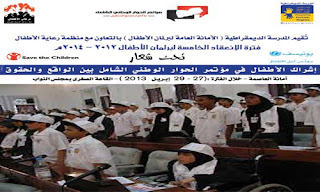In one day : Brigadier in capital, director in central Yemen assassinated
A senior officer in the armed forces survived an assassination attempt when a bomb planted in his car exploded as he was driving on Baghdad Street in downtown of the capital Sana’a.” a security source told Yemen Observer.
Brigadier Abdullah al-Mihdhar in Yemen’s armed forces, who worked as a lecturer at the Military Academy, in the capital, and his 13-year-old son were seriously injured him, according to the source. The Brigadier later on was reported dead as he was hospitalized in the intensive care unit at the Military Hospital in Sana'a.
The source also pointed out that a forensic team rushed to the scene and cordoned the place off and police have immediately started investigation into the incident.
In Rada’a city of Bayda province, central Yemen, Director of Walad Rabea district, Sheikh Ali al-Ma’atti, was killed on Sunday in ambush that took place next to his house.
Local sources said unidentified gunmen opened fire on al-Ma’atti while leaving his house and fled the scene. Sheikh al-Ma’atti was transferred to the capital Sana’a for treatment as he was in critical conditions, according to the sources, but later on, Sheikh al-Ma’atti was also reported dead of serious wounds.
Rada’a city has been witnessing a state of security chaos in the past three years as well as a series of sabotage acts and armed clashes that claimed the lives of many citizens.
In one day : Brigadier in capital, director in central Yemen assassinated
By Akram al-gaolahiA senior officer in the armed forces survived an assassination attempt when a bomb planted in his car exploded as he was driving on Baghdad Street in downtown of the capital Sana’a.” a security source told Yemen Observer.
Brigadier Abdullah al-Mihdhar in Yemen’s armed forces, who worked as a lecturer at the Military Academy, in the capital, and his 13-year-old son were seriously injured him, according to the source. The Brigadier later on was reported dead as he was hospitalized in the intensive care unit at the Military Hospital in Sana'a.
The source also pointed out that a forensic team rushed to the scene and cordoned the place off and police have immediately started investigation into the incident.
In Rada’a city of Bayda province, central Yemen, Director of Walad Rabea district, Sheikh Ali al-Ma’atti, was killed on Sunday in ambush that took place next to his house.
Local sources said unidentified gunmen opened fire on al-Ma’atti while leaving his house and fled the scene. Sheikh al-Ma’atti was transferred to the capital Sana’a for treatment as he was in critical conditions, according to the sources, but later on, Sheikh al-Ma’atti was also reported dead of serious wounds.
Rada’a city has been witnessing a state of security chaos in the past three years as well as a series of sabotage acts and armed clashes that claimed the lives of many citizens.

























